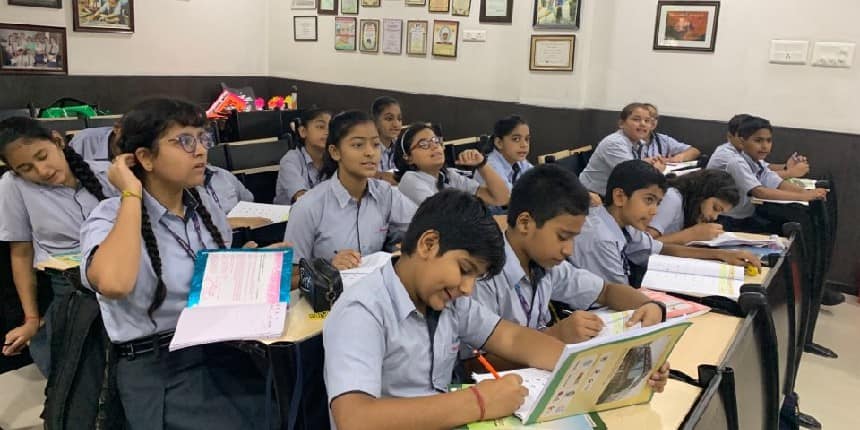NCERT seeks 'international experience' for National Assessment Centre, PARAKH
R. Radhika | August 31, 2022 | 12:40 PM IST | 3 mins read
Board Exams: An extension of NCERT, PARAKH will be in charge of NAS and also guide state and central boards in the country.
CBSE Class 10th Syllabus 2025-26
Students can access the subject-wise CBSE Class 10 syllabus for the 2025–26 academic session.
Check Now
NEW DELHI: To bring international standards in learning assessments, the ministry of education will set up a standard-setting body that will provide standardised assessment and evaluation for all recognised school boards across the country.
New: CBSE 2026 Final Date Sheet PDF Released - Download Here
CBSE Class 10 PYQ's: Hindi | English | Science | Math-Basic | Math- Standard
CBSE Class 10: Science Important Questions with Answers PDF (2025-26)
CBSE Class 10: CBSE Class 10th Syllabus 2025-26
A constituent of the National Council for Educational and Research Training (NCERT), the proposed National Assessment Centre, PARAKH (Performance Assessment, Review and Analysis of Knowledge for Holistic Development), will lead all student assessment work in India.
The centre has floated tender inviting bids from “consulting agencies” with “international experience” to design and build the capacity of national and sub-national assessment centres. The move is intended to allow PARAKH to incorporate “international evidence” to strengthen assessment systems in India to meet COVID-19 and other pandemic situations necessitating remote assessment.
The project is supported by the World Bank-financed Strengthening Teaching-Learning and Results for States, or STARS programme, which focuses on improving learning assessment systems. STARS will supply multi-year financing for establishing the National Assessment Centre - PARAKH.
Also Read| Education ministry sets up committee to form NAC, replacing NAAC, NBA
As envisaged in the National Education Policy (NEP 2020), PARAKH will eventually become the national single-window source for all assessment-related information and expertise, with a mandate to support learning assessment in all forms, both nationally and where applicable, internationally.
NCERT PARAKH functions
The proposed body, PARAKH, will also undertake the National Achievement Survey (NAS) and guide the State Achievement Survey (SAS) to monitor the achievement of learning outcomes in the country. The body will design NAS 2024 maintaining links with NAS 2021 for comparison.
The aim is to shift the assessment pattern towards meeting the skill requirements that include the latest research, promote collaboration between school boards, and ensure equivalence of academic standards across all school boards.
PARAKH will also guide examination boards, even of state education boards. This will be the first instance of direct central influence on the business of state education boards. The core national body will also support states in improving their State Learning Achievement Surveys (SLAS) and developing meaningful assessment strategies based on its findings.
“The idea is to establish coordination between the NCERT, SCERTs and state boards. PARAKH will be a standard testing body which will act as a bridge between the states to determine what can be done to overcome challenges faced by each state and bring them to a uniform level,” said Pratishtha Singh, Survey Associate, NCERT.
Also Read| MERITE Project: Centre’s new plan to improve technical education with World Bank loan
In addition, the body will manage India’s participation in international assessments like the Program for International Student Assessment (PISA), Trends in International Mathematics and Science Study (TIMSS), or Progress in International Reading Literacy Study (PIRLS).
NEP 2020: Rote learning to conceptual clarity
NEP also suggests moving away from assessments that primarily test rote memorisation skills to ones that are more regular and formative, more competency-based, and test higher-order skills, such as analysis, critical thinking, and conceptual clarity.
The assessment design will be formulated using classical test theory, item response theory (IRT), equating or linking, standard setting, and other measurement and psychometric techniques.
The body will be responsible for developing and implementing technical standards for the design, conduct, analysis, and reporting of a wide variety of large-scale and standardised assessments in foundational (anganwadi or pre-school, Classes 1 to 3) , preparatory (Classes 3 to 5) , middle (Classes 6 to 8) and secondary (Classes 9 to 12).
Follow us for the latest education news on colleges and universities, admission, courses, exams, research, education policies, study abroad and more..
To get in touch, write to us at news@careers360.com.